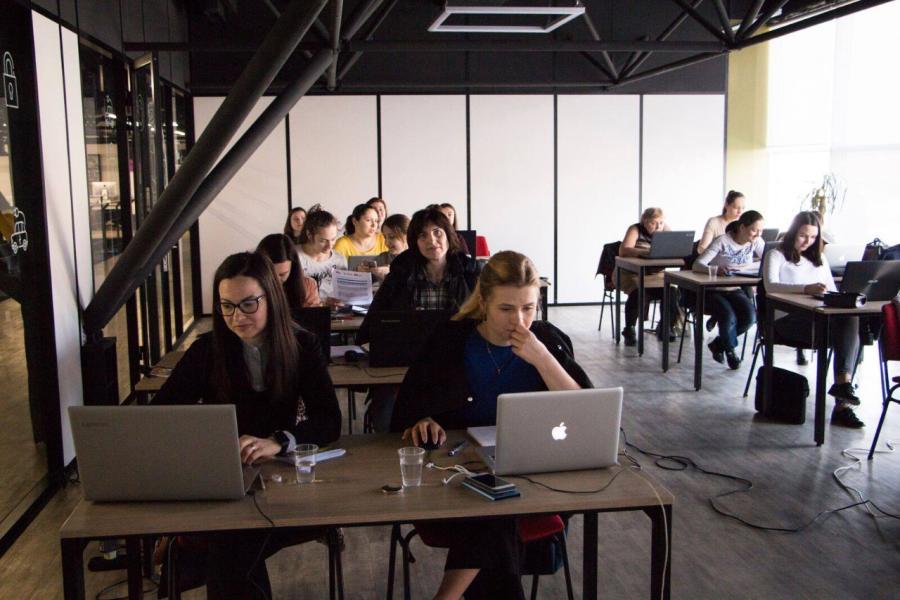Moldovan education company increases youth employment through IT training
06 August 2020
As the first member company from the Republic of Moldova, educational technology company Codifun has joined Business Call to Action with a commitment to broaden its delivery of affordable information technology (IT) courses by 2022 and enable 125,000 low-income people in Romania, Moldova and Ukraine to find well-paying jobs.

BCtA aims to accelerate progress towards the Sustainable Development Goals (SDGs) by challenging companies to develop inclusive business models that engage people with less than US$10 per day in purchasing power (in 2015 dollars) as consumers, producers, suppliers and distributors. It is supported by several international organizations and hosted by the United Nations Development Programme (UNDP).
Nearly 30 percent of Moldovan youth aged 15 to 29 are classified as Not in Employment, Education or Training (NEET). A high rate of such youth has been linked to long-term social consequences and marginalization that can follow young people throughout their lives. According to a 2017 report, low youth education and underemployment can also lead to economic losses greater than 2 percent of the GDP.
Neighbouring countries Romania and Ukraine report similarly high NEET rates. These pessimistic statistics are compounded by a significant gender gap. In Romania, nearly one in four women is classified as NEET, compared with one out of every 25 men. For Moldovan women aged 25 to 29, the rate is more than one in two.
Codifun aims to improve economic equality by delivering IT courses that will give young people and women the skills to secure well-paying employment in the modern technology sector.
“Our business is based on the principle of building human resource capacity in developing countries,” says Veceslav Caburgan, CEO of Codifun. “Supporting women and people at the base of the economic pyramid is an integral focus of our activities.”
The company’s plan includes two service models: by the end of 2022, it will have delivered IT courses to 125,000 low-income people, of which 70 percent are women and 75 percent are younger than 35, as well as provided these courses to at least 200 companies.
In its business-to-consumer model, young people pay approximately US $10 per month to access an online subscription where they can learn skills such as 3D printing, web development, software design and animation.
The Codifun platform is fun – many of the courses take a gamification approach to learning – but it applies a rigorous standard to its teaching, from initial instruction through knowledge application. When courses end, students can receive additional support from an artificial intelligence-based virtual mentor.
For many people in Codifun’s targeted regions, the cost of a user subscription is still far out of reach. That’s why it also offers a business-to-business model, in which organizations pay for prospective students to complete courses, then select the best candidates for employment. If a student is selected, the employer can trust that they have been thoroughly trained through Codifun.
“Codifun’s cooperation with businesses provides a creative solution for fighting poverty in disadvantaged regions, offering some of the poorest segments of the population education and training for the jobs of the future,” said Luciana Aguiar, Head of Business Call to Action.
The company takes care to model its values internally. By the end of 2022, Codifun will hire 100 college graduates who might otherwise have needed to leave the country for a stable income. It will also collaborate with 50 low-income teachers and professors to develop courses for the platform. The authors will split the income equally with Codifun, providing them with a revenue stream that could double their regular income and pull them out of poverty.
In 2018, Codifun won a competition of innovative projects launched by the National Association of Information Technology and Communication Companies (ATIC) and UNDP Moldova, with a project aiming to automate the learning processes and apply innovative learning techniques, to help young people master a new modern profession and help companies train future employees or re-qualify their current staff.



